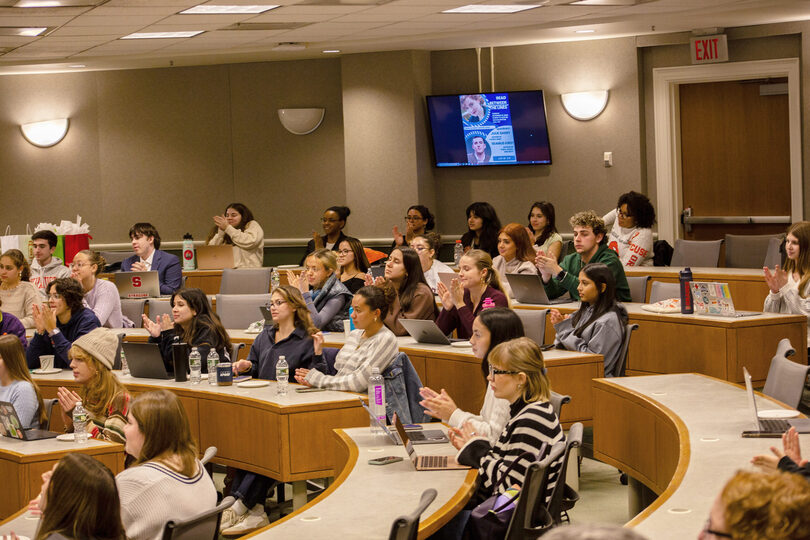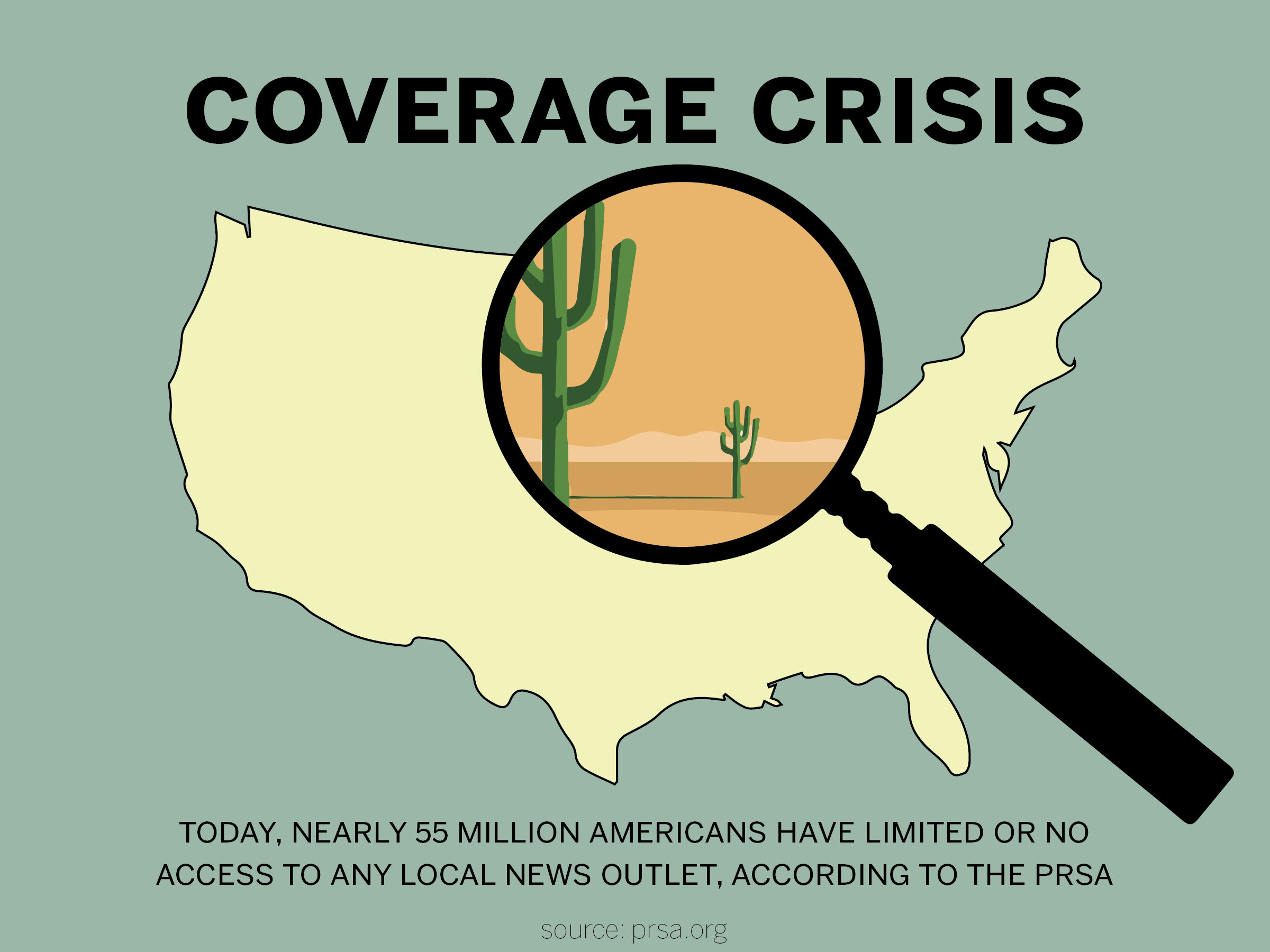Opinion: Engage in local news to combat polarization with civic engagement

The absence of local news and its audiences contributes to growingly polarized politics and decreased civic engagement, our columnist writes. Without intervention, democracy risks morphing into a fight fought only on national terms. Sean Sterling | Staff Photographer
Get the latest Syracuse news delivered right to your inbox.
Subscribe to our newsletter here.
Since 2005, more than 3,000 local newspapers in the U.S have shut down. In their place are “news deserts” where no one is covering the city hall, school board or neighborhood events. This absence of local reporting has contributed to increasingly polarized politics and decreased levels of civic engagement.
This inverse relationship isn’t a coincidence.
When local papers close, people don’t find another local option. Instead, they switch to watching and reading national networks which they then lean on to make political decisions.
But preserving local news is so important for decreasing political polarization because it provides something national news does not: cross-cutting identities. A cross-cutting identity is something that connects members of different political parties rather than dividing them against party lines, which national news does quite frequently.
National outlets thrive on conflict in politics, treating it almost like a sport. They don’t have the ability to cover every single federal, state and local legislative office in this country, and they definitely don’t make your representative feel accountable to you like local outlets do.
When the news people consume is about their own community, such as schools and city services, they see themselves as an engaged member of their community, and representatives as local agents of their community. But when people only get information from national news, they see themselves through a predominantly partisan lens, and their representatives as either winners or losers, increasing polarization and division.
In July, just days after the House of Representatives voted to take away $1.1 billion in funding for public broadcasting, Syracuse representative John Mannion introduced the Local Journalism Sustainability Act. The act aimed to preserve local journalism and promote engagement in it by providing annual tax credits for subscriptions to local paper and print newspapers. The proposed legislation also partially covers compensation for local journalists and gives advertising credit to small businesses that promote local journalism.

Katie Crews | Design Editor
If we want to stop the trend of people being less politically informed due to the lack of unbiased local news, then this is the exact type of legislation we need to encourage our representatives to support and continue proposing.
As of last year, 85% of Americans believe local news outlets are at least “somewhat important” to their communities’ well being. Additionally, Americans who follow local news “closely” are more than twice as likely to vote in local elections compared to those who don’t.
These findings underscore the need to preserve local news if we want to live in a civically engaged world that isn’t so insistent on keeping people divided, fearful and angry at the concept of people having differing views.
The issues caused by declining local news presence don’t just affect voters, they also affect how legislators legislate. New legislators end up representing their party more than the needs and wants of their constituents and veteran legislators have “lost sight” of what their role is. Issues that some believe don’t belong to parties, like sanctuary cities and environmental issues, have become partisan.
Even government transparency in some places has decreased because with fewer local news outlets to cover local government, there is less accountability and less presumed public interest since there are fewer places to be informed about these issues.
Additionally, smaller newsrooms mean fewer candidates running for local positions like mayor and school board due to lower urgency to engage, so incumbents are more likely to run uncontested and therefore win. Incumbents don’t have to spend as much money on campaigning, and don’t have to work as hard, given there’s no one to hold them accountable compared to areas that have a strong local news presence. Incumbents also vote the party line more frequently, contributing to increased polarization.
A 2023 statistic from Northwestern University found 49.5% of U.S. counties had only one news outlet left and 203 counties had no local news outlets. This is extremely concerning and can’t be brushed aside as only a media problem; it’s a democracy problem. Without intervention, democracy risks becoming a fight fought only on national terms with no space for everyday concerns that actually bind neighbors together.
Recent acts of political violence show just where our increasingly polarized society is leading us. Public figures are continuously targeted and ordinary people feel less safe voicing their views. A stronger foundation of local journalism won’t solve everything, but it can rebuild some of that trust and common ground that keeps politics from turning deadly.
This is not to say you should sacrifice your feelings of safety to get along with people who don’t think you deserve basic human rights or respect. Rather, it’s that we can’t let politics reduce every neighbor to an enemy. Boundaries can and should be drawn, but we should strive to give just as much attention to the shared issues in our communities that connect us as we do to the national news.
Emma Donohue is a sophomore studying political science and citizenship and civic engagement. She can be reached at efdonohu@syr.edu




